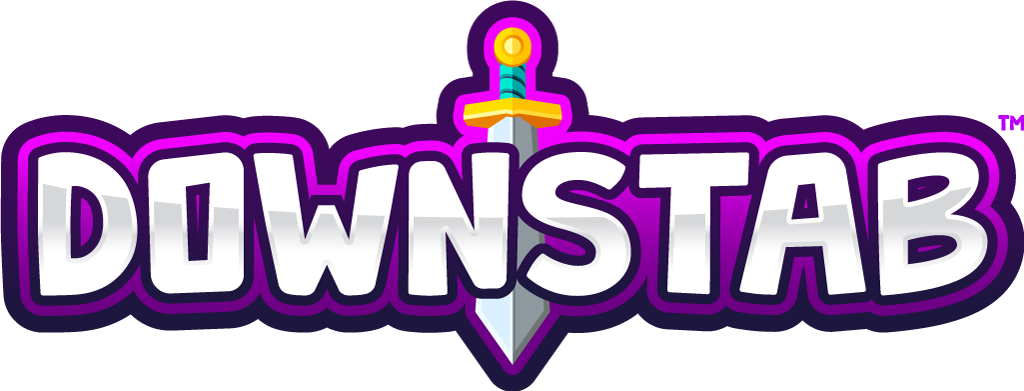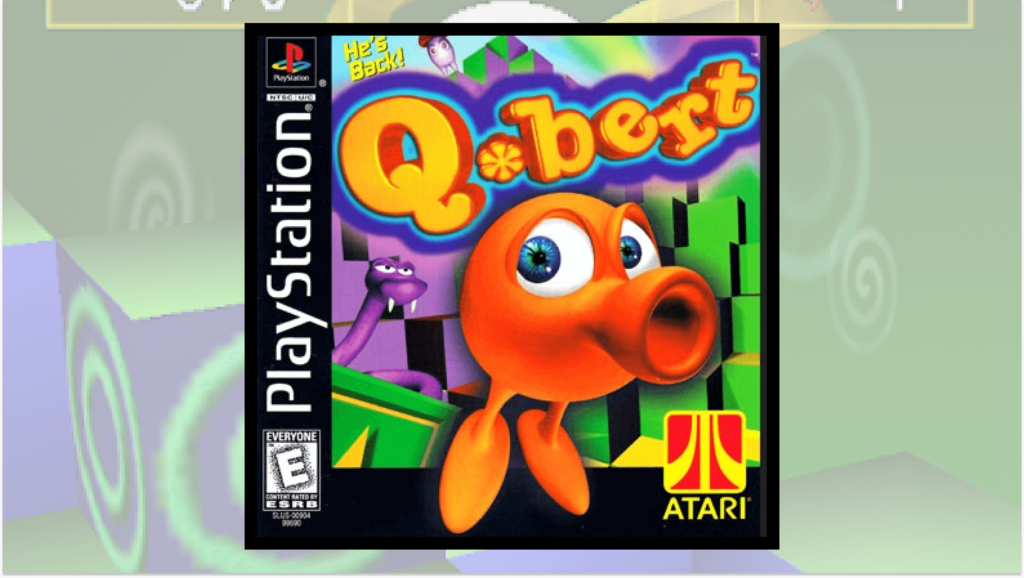Retro games went one of two ways when the era of 3D games emerged: completely change up their approach to the series and adapt new gameplay mechanics while retaining something the series is known for. Games like Super Mario 64 and Fallout 3 show this transition nicely. The other route classic games tended to go involved making the exact same game but with 3D visuals, and sometimes added elements like 3D exploration. Games like Frogger or Tetris might fit in here: they’re not bad, they just aren’t the greatest game some 20-30 years since their original arcade release.
When playing through the Playstation version of Q*Bert I started to wonder if there were some games that just cannot make that transition. It’s not the fault of the developers of the remade game: it’s just the nature of the game itself that doesn’t translate well to the mechanics a new system might offer. Q*Bert the arcade game already involves pseudo-3D mechanics so maybe that’s why Q*Bert the Playstation game didn’t feel all that special? Making an addendum to that above statement about retro game translations might include an asterisk denoting not all retro games are well suited to jump into 3D.

Okay, so what about the Playstation’s Q*Bert was worth noting? Well for starters it is a solid game of Q*Bert. Despite being in 3D, the game looks and feels largely like the arcade original from 1982, just with 3D character models. You still move in an isometric grid, you still turn cubes colors by repeatedly jumping on them, you still avoid snakes and balls, you still speak gibberish when you lose a life. Players of that original game will surely find gallons of nostalgia in this one, and new time players can get a similar first time experience. There’s even an arcade port of the original Q*Bert on the disc, so you can relive the arcade experience all over again!
Where the Playstation’s Q*Bert does make some leeway in new gameplay are the later stages and additional game modes. Instead of the typical pyramid style of stages, eventually you’ll be hopping around small zones in a variety of shapes and arrangements. The goal is still the same, but the execution and strategy changes. I found it interesting at first, but a bit frustrating later as it was quite simply not that fun. There is an option to play just the “Classic” gameplay, with the aforementioned Pyramid design, as well as an option to toggle from the new 3D visuals to the retro 2D arcade style visuals. After about an hour, you’ve likely seen all the game has to offer, with no real redeeming factors to continue playing.

Mediocrity and sameness aside, by far the worst thing about Q*Bert on Playstation has to be the controls. But not in the traditional sense: they handle fine and do what you expect. I am talking more about how difficult the game is to physically play. You’ll be pressing diagonal buttons in order to move in the expected direction. If you don’t press a button, or if the game registers you are pressing just right and not down+right together, you’ll not move at all. Considering this is a game all about timing and precision movement, not moving is a huge detriment. To compensate, I found myself aggressively hitting the diagonal buttons on the Playstation controller, which resulted in my fingers legitimately being bruised. Yes, bruised. When I was done playing, and for several days after, my thumb on my left hand ached. The analog stick is an option, but moving quickly and flicking the stick might not result in moving in the direction you anticipated, so sticking with the D-pad was the true way to go. I would give this one up to being a pseudo-3D game when it released in arcades, and arcade cabinets supporting a control stick and not a D-pad. Believe me, it will make your experience different.
There are several retro style arcade games with enhanced Playstation ports and remakes. Frogger, Galaga, Missile Command, Pac-Man, Asteroids, and Breakout (to name just a few) saw releases on the system. While some of them were decent enough to garner a following and maybe a sequel or two, most were one-off attempts to move their franchise out of the retro market and into the new generation. Sadly, Q*Bert is in the latter half of those games, and will forever be relegated to the retro section of arcades and the compilation discs of future game console releases.

This isn’t a bad place to be. Q*Bert and so many others represent the very best of the era they were birthed. Sure they didn’t make a big splash on the 3D scene some 15-20 years after their initial release, but they don’t need too: their impact is felt and their inspiration has landed. If retro arcades games need to fill any niche in gaming it would be just that: retro arcade games. They do it best, and we as gamers need these experiences to round out the total pack video games as a whole deliver. Q*Bert, the arcade game and the Playstation game, show us how a franchise and style of game can (or cannot) stand the test of time. And that’s ok.
Laters,
Jsick






